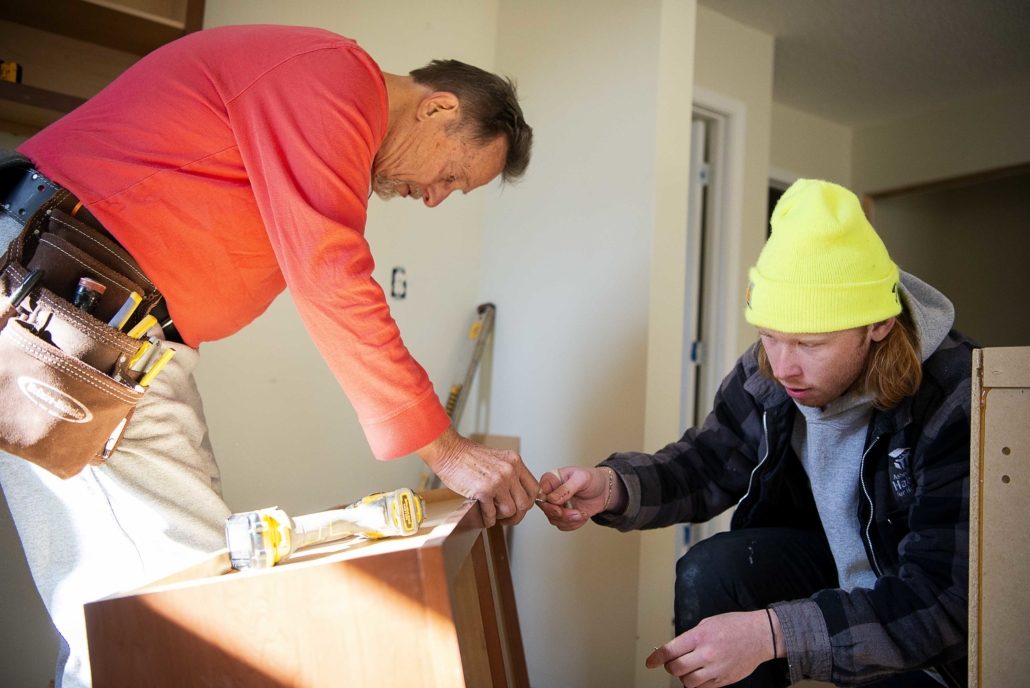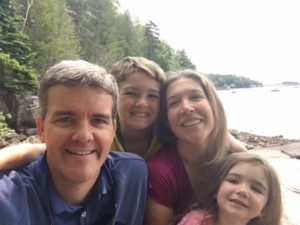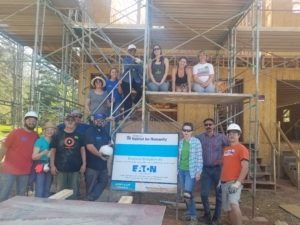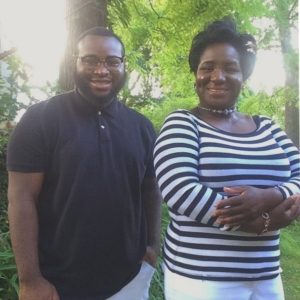AmeriCorps Reflection: Importance of Listening
A reflection by AmeriCorps VISTA member Krysta Osweiler, who works in Homeowner Services.
“The more I’ve had the opportunity to speak with different members of the community (over 200 individuals in just one quarter!), the more I’ve seen the ways that the entire issue of affordable housing affects far more people than I ever thought it would. I came into my VISTA role knowing that there was a huge need, but as I’ve spent time talking with different community members, and really listening to their stories, I’ve seen many of the ways that housing can, and often does, divide people. Almost into the “haves” and “have not’s”. For some, renting is a way of life. For others, it’s all they can afford. For even more, they haven’t once considered that there may be another option.
Each of my grandparents owned their homes, and my parents have owned a home since I was baby. I have never once considered that homeownership might be out of reach for me. But that’s not how it is for everyone, and depending on where you live, monthly mortgage payments could cost far more than rent would. Up until now, I’ve really seen the question of homeownership as being purely a matter of finances, without fully appreciating that there can often be a whole lot more at play in the decision than just money.
One of my most meaningful experiences was completely unexpected. I reached out to our local community college, wondering how I could best connect with their ESL students. Imagine my surprise when the response was an invitation to speak with their English conversation class! There were 9 class members on the day of my visit, each with varying levels of English proficiency. The facilitator had prepared a list of questions to discuss, specifically focused on housing, and it was pretty eye-opening to hear their responses. Some were interested in a house, but only after having children, once they’d really “need” the extra space. Others lived with extended family, and desperately wanted to be in a place of their own; but their cultures were the kind where multiple generations lived together, and not having other family members in the home would never be an option for them. One came from a city where literally no one could afford to buy a home of their own, so until this conversation, it had never once crossed his mind that people might do that.
Housing and “home” is something we all see very differently, depending on where we came from and what our point of reference is. I knew that if you always rented, and your parents always rented, and your grandparents always rented, that you probably wouldn’t recognize homeownership as an option for you. But I didn’t fully appreciate the ways that your culture could play into that, or how it can even go so far as to dictate your housing choices for you. Many of these international students had always lived with extended family, and really wanted to enjoy their apartments here, and the space to themselves. One even said that as long as they were in a small apartment, no one else would come live with them, but if they had a house, other family members would definitely be living there, too. That completely took away any motivation for them to purchase a house down the road. When my husband and I first bought a house, that wasn’t even part of what we considered. We wanted to have space for our family members to be able to visit. But for these students, having that space would mean something completely different. It wouldn’t have been space for visitors, it would have been space for long-term guests that wouldn’t necessarily leave.
These conversations have been an important part of sharing information about Habitat with our community. They’ve also been important as a way to educate people on both sides of the table. Not only did these students need to hear that homeownership is a possibility, I needed to hear what shaped their thoughts on the process. We each have a unique perspective, and every single one of those perspectives is valid. Until we really listen to the people on the “other” side of the table, we won’t be able to recognize how different our thoughts might be. Much of my time has been spent educating the community at-large about Habitat and the services we provide. In doing so, I’ve learned from community members themselves, and for that, I am grateful.”





